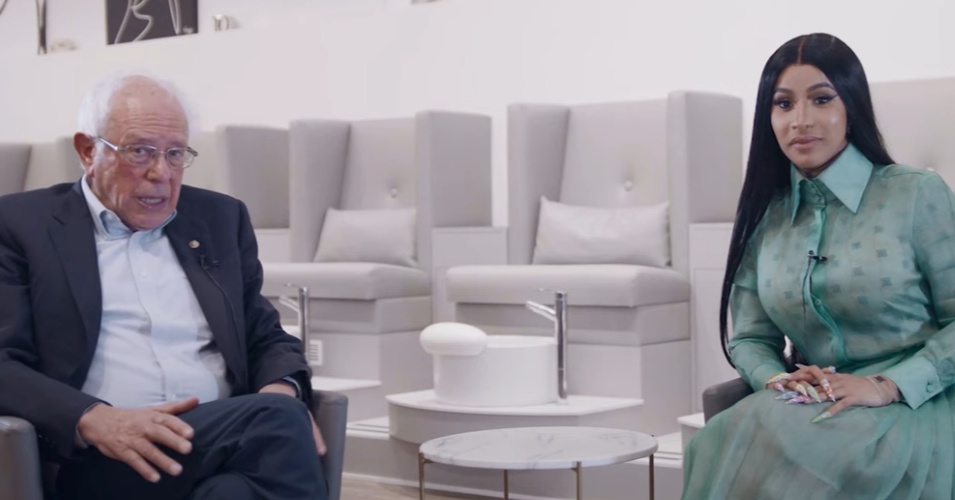Social media has always been hailed as a tool for those with little to no voice or representation within society and it can definitely aid pro-democracy movements on occasion, unfortunately overall it gives the far-right parties and authoritarians an advantage. These platforms, once seen as an ally to democracy, have progressively become its enemy.

It is easier for misinformation to be spread on social media than it is to correct it, it is also easier to ignite social divisions than it is to repair them. The very nature of how we engage in social media helps the far-right, authoritarian factions to wear away at the foundations of our democratic systems and even give themselves a straightforward route to gaining authority. This can be seen recently in the 2018 Presidential elections in Brazil where far right candidate Jair Bolsonaro was part of a well-funded campaign that spread false information about his political opponents, this proved extremely effective as it was difficult for his opponents or the press to discredit or disprove these false allegations. This spreading of false information could be seen throughout the numerous WhatsApp messages that were sent throughout the election campaign, The Guardian conducted a survey of viral WhatsApp messages spread throughout 296 group chats and found that “approximately 42% of right-wing items contained information found to be false by factcheckers. Less than 3% of the left-wing messages analysed in the study contained externally verified falsehoods.” This again shows how instrumental the spreading of political misinformation is tactically for far-right political candidates.
Democratic Recession was a term created by political scientist Larry Diamond and can be described as “the decline of liberal democracy or the strength of democratic institutions in countries that formerly had a higher level of freedom and democracy.” This is a result of right-wing candidates who manipulate information on social media to get elected and then force their views on others. None have done this in a more prolific manner than current US President Donald Trump. Trump, has made over 20,000 false claims since he was elected and again the same problem arises. Despite the mainstream media debunking his claims right-wing outlets spread these lies or manufactured supporting evidence on social media, where it is seen as fact in the eyes of the president’s core supporters. Researchers from Princeton University and New York University found that conservatives were more than four times as likely to share fake news on Facebook as liberals. As a result of misinformation being spread and acknowledged as fact by a portion of the population Trump was able to convince certain voters that Hillary Clinton was involved in the alleged “pizzagate” incident, which helped him to win his Presidential bid over a far more experienced opponent. Furthermore, since his recent loss in the Presidential election he has continued this trend by making baseless claims of voter fraud. However at the time of writing 35 of his 36 legal cases claiming voter fraud have been dismissed in court.

Despite the far-right utilising social media far more efficiently than the left wing, there is still hope. As we have seen social media can be used as a powerful tool for the left-wing and pro-democracy groups. A recent example is the use of streaming platform Twitch by progressive politician Alexandria Ocasio-Cortez who streamed herself playing the popular game Among Us with several high-profile Twitch streamers, with at one point over 430,000 people watching her stream. She streamed with these social media stars in order to encourage voter turnout in the upcoming Presidential election as she knows young people often feel disenfranchised by politics and this was a good way to connect with many first time voters. So far, this tactic seems to have worked as in almost every state the turnout for the youth vote has increased dramatically. Another great example of a liberal politician effectively using social media is Bernie Sanders, Sanders already has a large following on social media and has held collaborations with celebrities like Cardi B. These are important as many Millennials and those in Gen Z preferred Sanders as a Presidential candidate over Biden so naturally one of the questions asked by Cardi B was why the youth should still vote for Biden and the Democrats. Furthermore, platforms like TikTok have been of great importance since the beginning of civil unrest and protests within the US to help showcase support for several causes such as Black Lives Matter Rallies. More recently TikTok has again proven to be an extremely effective social media tool for younger generations to showcase their support for causes as seen in the recent protests in Poland over the Government’s reversal on abortion rights. There have been plenty of videos showing the protests in Warsaw and other cities throughout the country.

Overall, we can see that social media has an ever-growing role to play within politics and this will only increase due to the continued distrust in traditional media. While currently far right politicians are more able to use their social media platforms to spread misinformation to be divisive and polarising which in turn helps them to get elected, this is mainly due to what I would call “traditional social media” such as Facebook which is populated with older generations who are typically more conservative politically. However, as time goes on I believe this will change as younger generations are better informed than their predecessors and with the help of more modern social media such as TikTok are able to communicate from a more liberal perspective.
Joel Currie is a final year BSc in Communication Management & Public Relations student at Ulster University. He can be found at LinkedIn and Twitter
